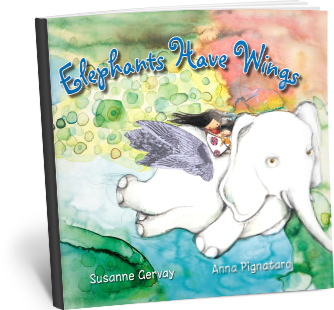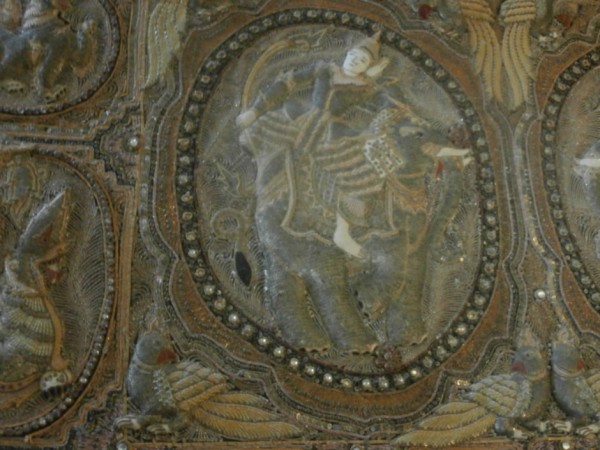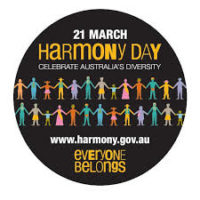
“Everyone is different, but we’re the same too. The elephant is in all of us.”
Two children embark on an extraordinary journey, nestled in the wings of a mystical white elephant, soaring across the universe. They witness its beauty and its conflicts, searching for the secret to peace and humanity. Elephants Have Wingsis a profound and visually stunning story inspired by the ancient parable of the Blind Men and the Elephant, found in Hinduism, Buddhism, Jainism, and Sufism.
Through poetic storytelling by Susanne Gervay and breathtaking illustrations by Anna Pignataro, this book invites children and adults to explore themes of truth, understanding, and unity.
Elephants Have Wings – A Powerful Tale of Unity, Understanding, and Peace
Inspired by the ancient parable of the Blind Men and the Elephant, Elephants Have Wings is a breathtaking story about the search for truth, peace, and understanding.
Guided by their father’s wisdom, two children embark on a magical journey on the wings of a mystical white elephant. They travel across rivers, jungles, mountains, and deserts, witnessing the wonders of the universe—and the conflicts that divide it.
But when war shatters the skies and the parts of the elephant are torn apart, the children return home, carrying the greatest discovery of all:
“Everyone is different, but we’re the same too. The elephant is in all of us.”
Illustrated with rich, layered textures and infused with symbolism from Hinduism, Buddhism, and other spiritual traditions, Elephants Have Wings is an interfaith, multi-faith, and humanist picture book that fosters inclusion, social harmony, and respect.
Why Read This Book?
Elephants Have Wings is more than a book—it’s a bridge to understanding. A must-read for fostering kindness, connection, and a deeper appreciation of the world around us.
Susanne Gervay is an award-winning Australian author, celebrated for her books that tackle real-life challenges with honesty, warmth, and depth. As a passionate advocate for children’s literature and social issues, she has worked extensively in anti-bullying initiatives, literacy programs, and youth empowerment.
Her I Am Jack series has been embraced by schools, families, and readers worldwide, addressing bullying, family, resilience, and growing up. The series has not only become an essential resource for anti-bullying education but has also been adapted into a successful stage production, touring Australia and beyond.
In Elephants Have Wings, Susanne takes readers on a powerful journey of peace, understanding, and interfaith harmony. Inspired by the ancient parable of the Blind Men and the Elephant, this beautifully illustrated book explores diversity, empathy, and respect across cultures and beliefs, making it a valuable resource for promoting inclusion and global awareness.
Through her writing, Susanne continues to inspire young people to find their strength, stand up for themselves, and embrace a world of understanding and acceptance.
Award-winning illustrator Anna Pignataro has created over 50 books for children, published in 17 countries and 11 languages. Winner of the Crichton Award for Book Illustration, her work has been recognised by the Children’s Book Council of Australia (CBCA) and YABBA. Through her whimsical and expressive artwork, Anna hopes to inspire children to dream, believe, and embrace the magic of storytelling.
In Hindu mythology during the monsoons that refresh the earth with life-giving rains, the clouds bringing rains are regarded as the WINGS OF ELEPHANTS. Airavata is a mythological white elephant who carries the Hindu god Indra. Airavata is also called ‘elephant of the clouds’.
The Parable of the Blind Men and the Elephant
‘Elephants Have Wings’ is a re-visioning of the parable of the Blind Men and the Elephant in a timeless landscape.
There are many versions of the story of the blind men and the elephant. tale, where a group of blind men (or men in the dark) touch an elephant to learn what it is like. Each one feels a different part. They argue over what they feel, until they realise they are touching the one elephant.
It opens the search for the discovery of – what is truth?
Originating in India, this parable is told in Hinduism, Buddhism, Sufism, Jainism and many Eastern faiths, mythologies and studied in philosophy universally.

Susanne’s journey to India and Asia, her experience at the Baha’i Temple in Delhi, multi faiths and the elephants in both religious art and wildlife, melded with the parable of the Blind Men and the Elephant. This combined with a deep commitment to discovering truth and inclusion.
The extraordinary kalaga, uniting the mythology of Buddhism and Hinduism with the mystical elephant, welcomed her back from India.
It spurred her onto create Elephants Have Wings.
“This is a book for all ages. The commonality of its story across so many religions begs an investigation into why it would be – what is its core message that has such universality?’
Barbara Braxton Teacher Librarian
M.Ed.(TL), M.App.Sci.(TL), M.I.S. (Children’s Services) Dromkeen Librarian’s Award

In Hindu mythology during the monsoons that refresh the earth with life-giving rains, the clouds bringing rains are regarded as the WINGS OF ELEPHANTS. Airavata is a mythological white elephant who carries the Hindu god Indra. Airavata is also called ‘elephant of the clouds’.
The Parable of the Blind Men and the Elephant
‘Elephants Have Wings’ is a re-visioning of the parable of the Blind Men and the Elephant in a timeless landscape.
There are many versions of the story of the blind men and the elephant. tale, where a group of blind men (or men in the dark) touch an elephant to learn what it is like. Each one feels a different part. They argue over what they feel, until they realise they are touching the one elephant.
It opens the search for the discovery of – what is truth?
Originating in India, this parable is told in Hinduism, Buddhism, Sufism, Jainism and many Eastern faiths, mythologies and studied in philosophy universally.

The Blake Prize is named after the legendary British artist and poet William Blake (1757-1827). Established by Jesuit priest, Michael Scott and a Jewish artist, Richard Morley to create significant works of spiritual art in 1951 in the search for understanding and peace. The Blake Poetry Prize was added in 2008. Elephants Have Wings is the only children’s book endorsed by The Blake Prize.

Harmony Day with its universal theme of inclusion, is integral to Elephants Have Wings which forms part of many Harmony Day celebrations on 21st March.
Elephants Have Wings is studied in the cross curriculum Australia and Asia engagement – Australian curricula, Asia and Australia and the Human Society and its Environment curricula for Geography.
Elephants are Asian or African and very intelligent. They show grief, joy, anger and play. They form deep family bonds and live in a herd led by the oldest and often largest female elephants. They have memories that span many years. Roaming in herds and consuming hundreds of pounds of plant matter in a single day, elephants need a lot off food, water and space. However their habitats are being lost and hunters are poaching them for their ivory tusks.
“A powerful and deeply meaningful book that challenges the idea that children’s literature must be simple. Elephants Have Wings beautifully conveys profound truths and timeless values in a way that is accessible, engaging, and thought-provoking for readers of all ages.”
“This stunning picture book reimagines the ancient parable of the blind men and the elephant, exploring themes of truth, perspective, and understanding. With ethereal illustrations and a rich, layered narrative, Elephants Have Wings is a must-read that will inspire deep conversations about peace, culture, and inclusion.”
“Inspired by her travels through India and Southeast Asia, Susanne Gervay has created a breathtaking book that promotes peace and unity. With Anna Pignataro’s exquisite illustrations, Elephants Have Wings is a remarkable fusion of storytelling, art, and cultural wisdom, fostering an appreciation for diversity and harmony.”